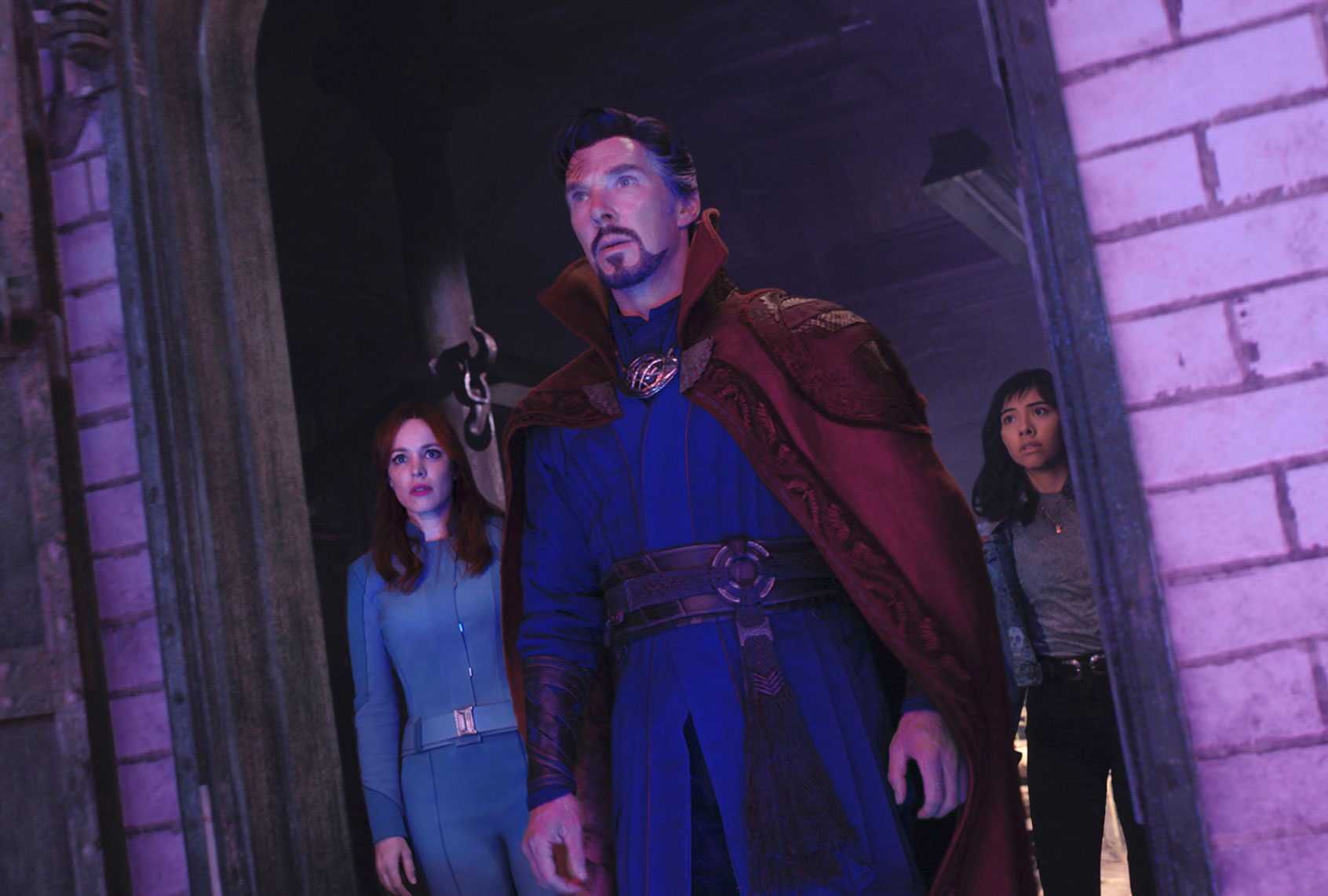Benedict Cumberbatch excels at playing eccentric geniuses, both real and fictitious. He can be a master of hesitating stammers and tics, but his performances never seem mannered; that is his brilliance. He can play a mastermind who is insidious, or sympathetic, or even goofy — and that is why he has such appeal. The actor makes the uptight misfits he plays downright charming — even when they are bastards. And there is something fans find oddly sexy about his brainy characters; his devotees are known as “Cumberb***hes.”
In his 20 years as a screen actor, Benedict Cumberbatch has amassed nearly 100 credits and two best actor Oscar nominations in addition to winning an Emmy for his work as “Sherlock,” a BAFTA for his performance as “Patrick Melrose” — both signature brainy roles for him. His career, which ranges from indie to prestige, arthouse to popcorn raises the question — is Benedict Cumberbatch incapable of giving a bad performance? (His nonbinary turn as All in “Zoolander 2” might be the sole example of a misfire.)
RELATED: The power of Kirsten Dunst and Jesse Plemons
Here is a rundown of Cumberbatch’s best misfits in movies that prove his genius as an actor.
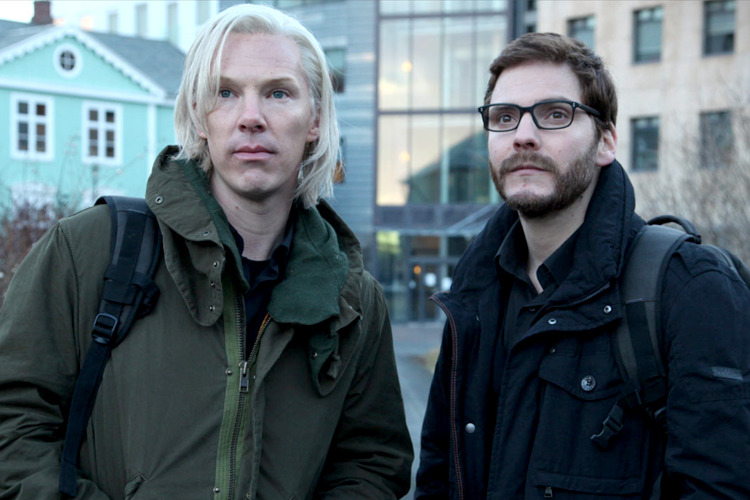 (DreamWorks Pictures)Bill Condon’s juicy drama casts Cumberbatch in one of his first leading roles, and it’s a doozy. As the Wikileaks founder, Julian Assange, Cumberbatch has the charisma of a cult leader; he draws viewers in by being both arrogant and charming, but also cold and calculating. The film may skimp on the personal details — it is not a biopic — but it is impossible not to look away from Cumberbatch whenever he is on screen. It is not just because the actor gets the hair and the accent spot on. He captures how power works as an aphrodisiac to Assange, who goes from the triumph of taking down the Swiss bank, Julius Baer to leaking classified government military records supplied to him by Chelsea Manning. Cumberbatch’s portrayal of Assange is cagey, mercurial — his eyes, even when he dead stares at the camera, insist he is thinking two, three, six steps ahead of everyone else. Cumberbatch leans into Assange’s egotism, but he also makes Assange aloof, and this is why his character is so seductive and his performance is so sensational.
(DreamWorks Pictures)Bill Condon’s juicy drama casts Cumberbatch in one of his first leading roles, and it’s a doozy. As the Wikileaks founder, Julian Assange, Cumberbatch has the charisma of a cult leader; he draws viewers in by being both arrogant and charming, but also cold and calculating. The film may skimp on the personal details — it is not a biopic — but it is impossible not to look away from Cumberbatch whenever he is on screen. It is not just because the actor gets the hair and the accent spot on. He captures how power works as an aphrodisiac to Assange, who goes from the triumph of taking down the Swiss bank, Julius Baer to leaking classified government military records supplied to him by Chelsea Manning. Cumberbatch’s portrayal of Assange is cagey, mercurial — his eyes, even when he dead stares at the camera, insist he is thinking two, three, six steps ahead of everyone else. Cumberbatch leans into Assange’s egotism, but he also makes Assange aloof, and this is why his character is so seductive and his performance is so sensational.
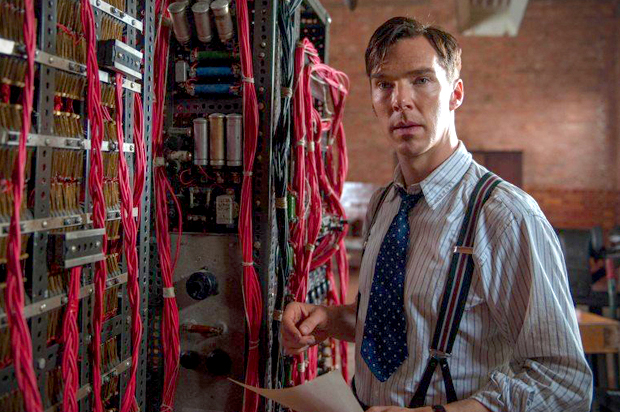 Benedict Cumberbatch in “The Imitation Game” (Black Bear Pictures)Cumberbatch’s breakout role — it earned him his first Oscar nomination — was another controversial real-life figure, Alan Turing. A mathematician and logician, Turing was super smart but had difficulty communicating with others. In his job interview at Bletchley Park, the home of the World War II codebreakers, it is amusing to see him befuddle Commander Denniston (Charles Dance). His Bletchley colleagues, Hugh Alexander (Matthew Goode) and John Cairncross (Allen Leech), admire his brains, but are wary of his eccentric behavior. However, Turing does befriend Joan Clarke (Keira Knightley), whom he hires to assist him at Bletchley and their scenes together are marvelous.
Benedict Cumberbatch in “The Imitation Game” (Black Bear Pictures)Cumberbatch’s breakout role — it earned him his first Oscar nomination — was another controversial real-life figure, Alan Turing. A mathematician and logician, Turing was super smart but had difficulty communicating with others. In his job interview at Bletchley Park, the home of the World War II codebreakers, it is amusing to see him befuddle Commander Denniston (Charles Dance). His Bletchley colleagues, Hugh Alexander (Matthew Goode) and John Cairncross (Allen Leech), admire his brains, but are wary of his eccentric behavior. However, Turing does befriend Joan Clarke (Keira Knightley), whom he hires to assist him at Bletchley and their scenes together are marvelous.
But Cumberbatch play Turing as someone obsessed with what he knows, and struggles to convince others that he is right. (And yes, they slowly do come around). As Turing succeeds in his effort to crack the Enigma machine and help end the war, “The Imitation Game” sizzles. But the film’s secret weapon is Cumberbatch’s performance, which never feels schtick-y, even when he gets tic-y. In fact, Cumberbatch is most poignant and affecting as the film focuses on the gay Turing’s chemical castration for “gross indecency.” He is completely debilitated, and emotionally inert. His performance is absolutely heartbreaking.
“Doctor Strange”
Cumberbatch enters the MCU as Dr. Stephen Strange, a condescending neurosurgeon who gets a taste of his own medicine when an accident leaves him with nerve damage and renders his hands useless. Seeking help in Kamar-Taj, The Ancient One (Tilda Swinton), tells him to “forget everything you think you know,” and trains him in the mystic arts. Having an out-of-body experience, Dr. Strange slowly rids himself of stubbornness, arrogance, and ambition, silencing his ego and surrendering his intellect.
Cumberbatch does not let the special effects diminish his performance. He leans into his reborn character with verve and wit — his exchanges with Wong (Benedict Wong) are dryly amusing, and he does have a comic moment with his cape. Moreover, as Doctor Strange becomes righteous, looking to save the world manipulating the space-time continuum even if it means breaking the laws of nature. “Doctor Strange” is hardly an actor’s showcase, but Cumberbatch had fun when his character bargains with Dormammu, cheekily repeating a line and meeting death over and over with different inflections and outcomes. With his smarts and his sorcery, Cumberbatch is cool as a cucumber.
“The Electrical Life of Louis Wain”
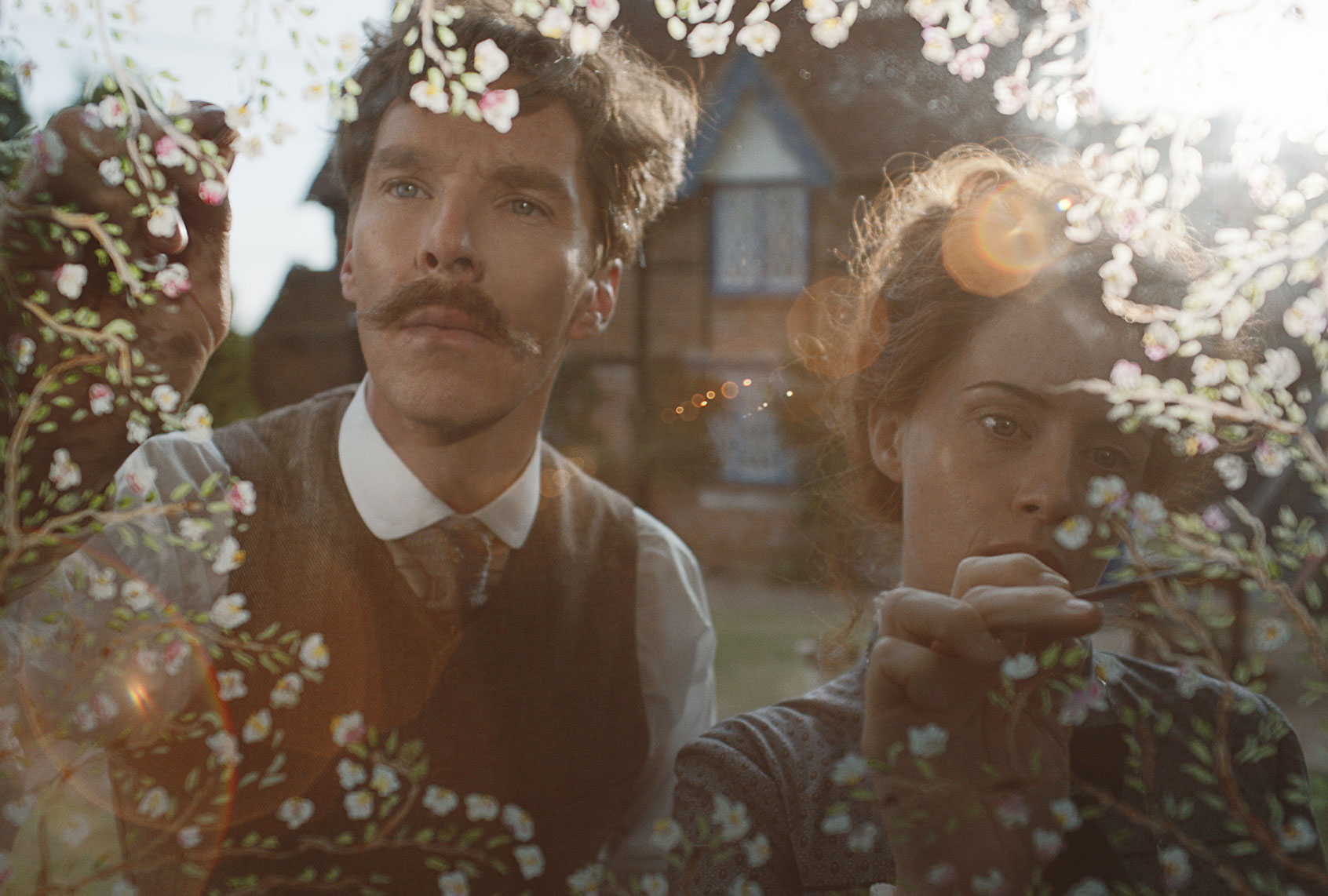 Benedict Cumberbatch and Claire Foy in “The Electrical Life of Louis Wain” (Amazon)Cumberbatch is charming as the title character, a cat painter, illustrator, amateur inventor, hobbyist and would be musician, in this offbeat biopic. He captures Wain’s kinetic energy with his fast-talking, spasmodic swimming, and unkempt hair. He even plays the piano with his feet. His household is chaotic, but he would rather box, draw, and write operas than manage his family. When he meets Emily (Claire Foy) a governess for his siblings, he falls in love, hoping she can ignore his prominent cleft palate. But then various personal and professional tragedies strike, and Wain’s mental state weakens; he develops deep fears and chases electricity causing those who care about him great concern.
Benedict Cumberbatch and Claire Foy in “The Electrical Life of Louis Wain” (Amazon)Cumberbatch is charming as the title character, a cat painter, illustrator, amateur inventor, hobbyist and would be musician, in this offbeat biopic. He captures Wain’s kinetic energy with his fast-talking, spasmodic swimming, and unkempt hair. He even plays the piano with his feet. His household is chaotic, but he would rather box, draw, and write operas than manage his family. When he meets Emily (Claire Foy) a governess for his siblings, he falls in love, hoping she can ignore his prominent cleft palate. But then various personal and professional tragedies strike, and Wain’s mental state weakens; he develops deep fears and chases electricity causing those who care about him great concern.
Cumberbatch gives an unselfconscious performance here, which is why some folks find his eccentric nature to be admirable and inspiring. But that is also why this cat man is such an outcast — he marches to the beat of his own drum. Talking to cats, that are, as Emily tells him, “Ridiculous, frightened, and brave, like us.” Cumberbatch makes Wain ridiculous, frightened, and brave, and that is why he is so endearing and inspiring.
“The Current War: Director’s Cut”
In this film, Cumberbatch plays Thomas Alva Edison who is competing with George Westinghouse (Michael Shannon) to control the electricity that will power the Chicago World’s Fair, among other things. Cumberbatch’s cigar-chomping Edison’s brain “runs and runs,” and his confidence is pure arrogance. Negotiating for a half million dollars, he says, “I don’t give you what you want, but you give me everything I want.” Edison never wants to lose, and his is not against playing dirty, lying about his rival and smearing him as well as secretly consulting on the design of the electric chair (despite having a principle about not creating things that kill).
RELATED: “1917” is a luminous, ferociously intense “single-take” wartime experience
But as Edison’s desperation in this battle against Westinghouse grows, Cumberbatch’s performance becomes more internal, as if he is absorbing all of the blows and does not want to admit defeat. His body language changes along with his demeanor. He gets smaller as he is repeatedly humbled. Edison is self-aware of being a bad husband and father, and that his secretary, Samuel Insull (Tom Holland), is “more human” than him. In “The Current War,” Cumberbatch pulls off the nifty trick of earning viewers’ sympathy even as they root for Westinghouse. And a scene near the end, when Westinghouse asks Edison about his feelings creating the filament that changed the world, his response is quietly powerful.
Want a daily wrap-up of all the news and commentary Salon has to offer? Subscribe to our morning newsletter, Crash Course.
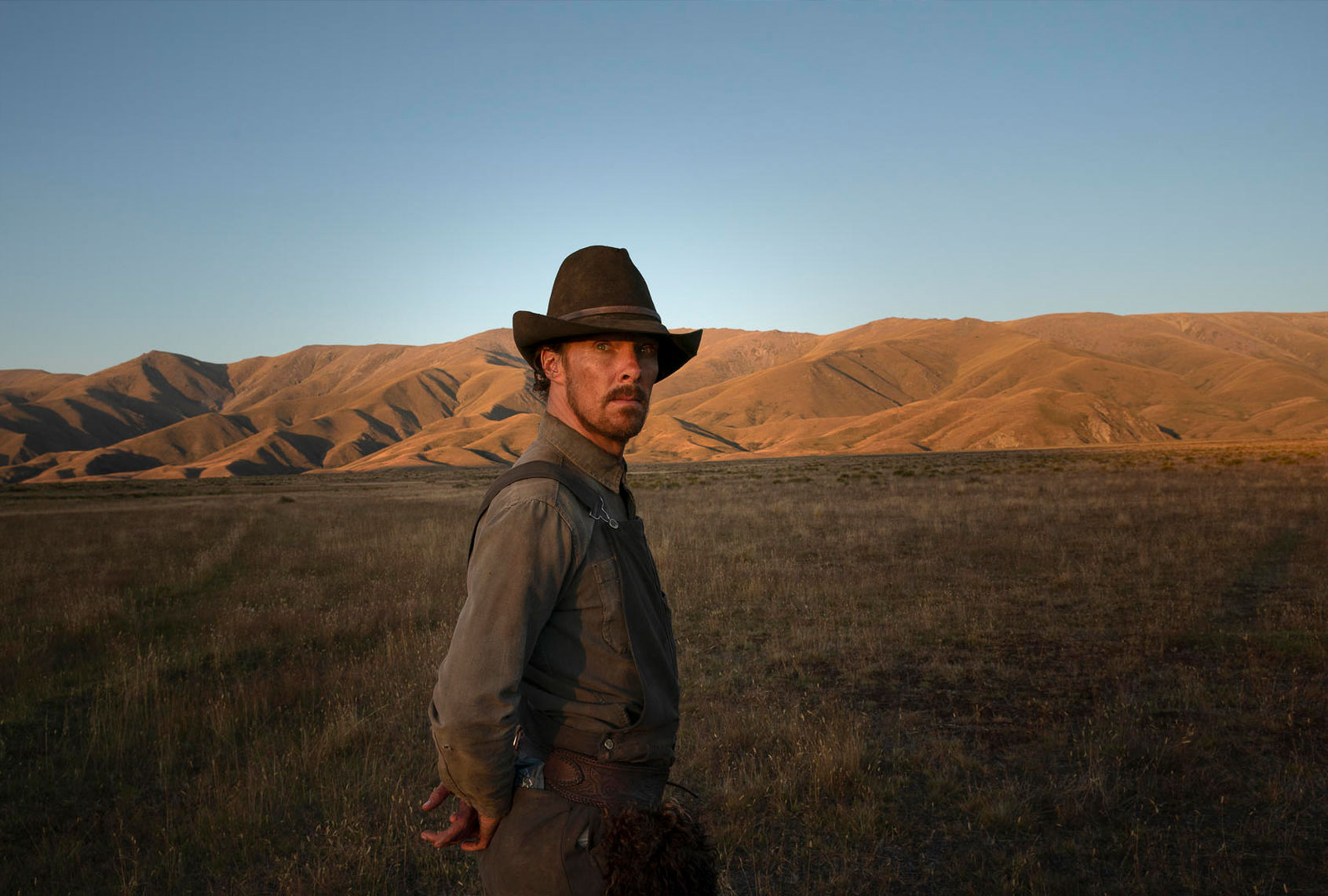 Benedict Cumberbatch in “The Power of the Dog” (Netflix)Cumberbatch’s Phil Burbank commands the screen in Jane Campion’s potent, Oscar-nominated western, and it is easy to see why. He is a smart, shrewd, imposing figure who is as feared as he is admired. He wields considerable power over the men he manages as well as his milquetoast brother, George (Jessie Plemons). A scene where Phil provokes George, who wants Phil to clean up and be polite, is a masterclass in passive aggressive behavior. Phil also toys with Peter (Kodi Smit-McPhee) the effeminate son of Rose (Kirsten Dunst), who soon becomes George’s wife — much to Phil’s chagrin. But Phil tries not to let these developments undermine his superiority. Certainly, when the Governor (Keith Carradine) and his wife come for dinner one night, he taunts them by not cleaning up and making Rose feel so intimidated she cannot perform on the piano when asked.
Benedict Cumberbatch in “The Power of the Dog” (Netflix)Cumberbatch’s Phil Burbank commands the screen in Jane Campion’s potent, Oscar-nominated western, and it is easy to see why. He is a smart, shrewd, imposing figure who is as feared as he is admired. He wields considerable power over the men he manages as well as his milquetoast brother, George (Jessie Plemons). A scene where Phil provokes George, who wants Phil to clean up and be polite, is a masterclass in passive aggressive behavior. Phil also toys with Peter (Kodi Smit-McPhee) the effeminate son of Rose (Kirsten Dunst), who soon becomes George’s wife — much to Phil’s chagrin. But Phil tries not to let these developments undermine his superiority. Certainly, when the Governor (Keith Carradine) and his wife come for dinner one night, he taunts them by not cleaning up and making Rose feel so intimidated she cannot perform on the piano when asked.
Phil however is overcompensating for his own self-loathing; he is a repressed gay man who takes to oiling up a saddle belonging to his mentor, Bronco Henry, or frolicking naked and pleasuring himself in a secret, remote area (away from his men, whom he covertly ogles). Phil may act tough castrating a bull with his bare hands, but he becomes vulnerable when he and Peter share a few friendly, tender moments. Cumberbatch exudes power here, sucking all the oxygen out of the room, pushing people’s buttons, and delighting in being in control. It is a tour-de-force performance, and Cumberbatch delivers what may be the best work in his impressive career.
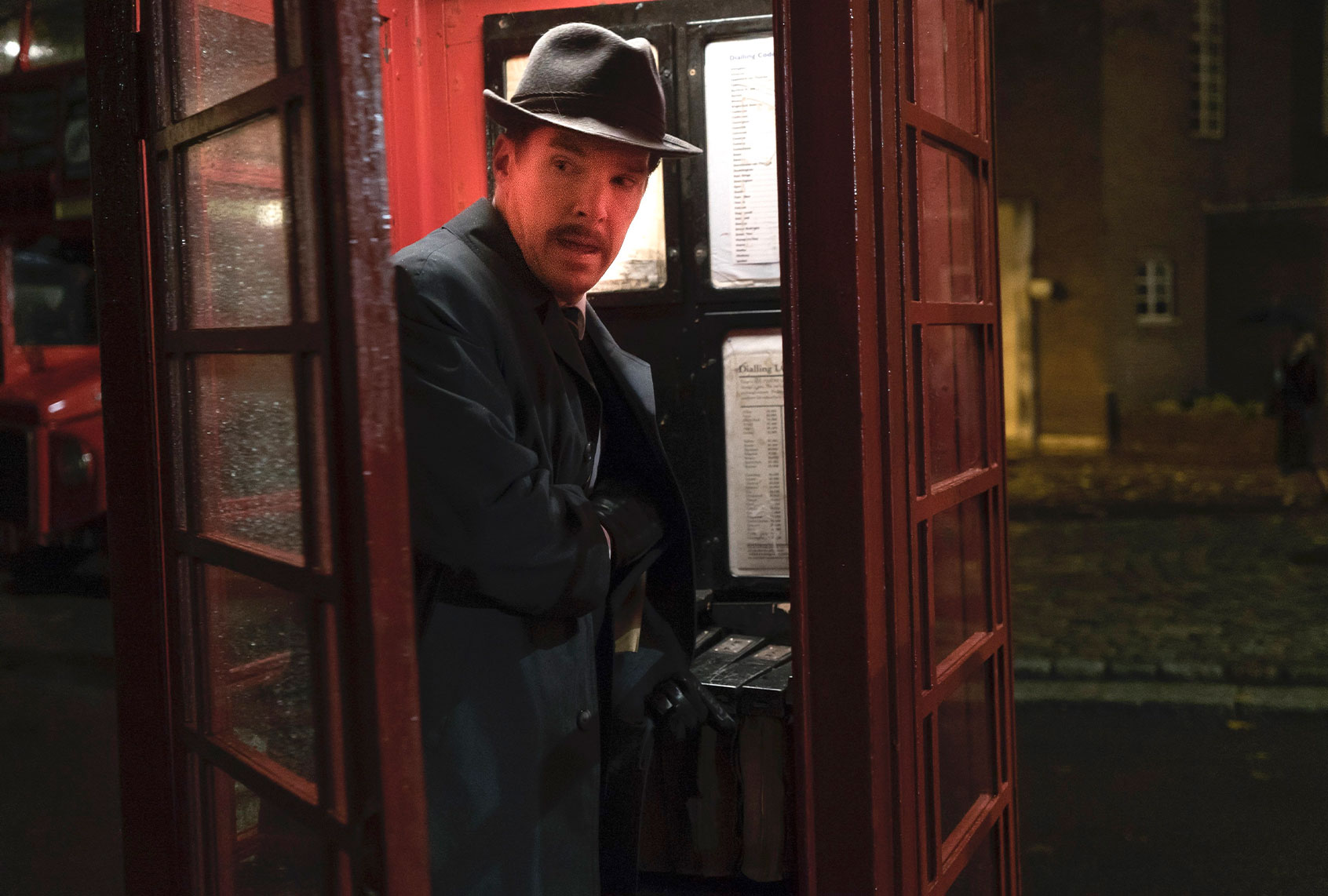 Benedict Cumberbatch in “The Courier” (Liam Daniels/Lionsgate/Roadside Attractions)
Benedict Cumberbatch in “The Courier” (Liam Daniels/Lionsgate/Roadside Attractions)
Don’t dismiss Cumberbatch’s fine turn in this modest Cold-War spy-thriller. As Greville Wynne, a British man who secretly delivered critical intelligence information to America, Cumberbatch transforms from a drab ordinary guy who is obsequious and apolitical to someone who becomes emboldened by his secret agent work. But this also makes him tenser, more coiled, and colder and Cumberbatch is terrific at recalibrating Wynne’s emotions.
With a stake in the action, he becomes morally invested in his work but distant towards his wife (Jessie Buckley). He is no longer the fuddy-duddy who loses at golf to enhance relations with a business client, and drinks too much, but an unlikely spy who takes his frustrations out on his family. And Cumberbatch makes Wynne sympathetic as a result. He is a man trapped in a situation not of his own making, but he understands the importance of his work, even if it comes at the expense of his life. Wynne is the flip side of Alan Turing; he is a reluctant spy who sacrifices his own happiness for the greater good.
More stories you might like:
- The televisual Sherlock: The role that made Benedict Cumberbatch a star drove another actor insane
- “Patrick Melrose” and Benedict Cumberbatch’s darkness fix
- Charlie Kaufman’s exasperating “I’m Thinking of Ending Things” could’ve been a masterpiece
- Olivia Colman is magnificent in “Lost Daughter,” which hooks you and doesn’t let go
